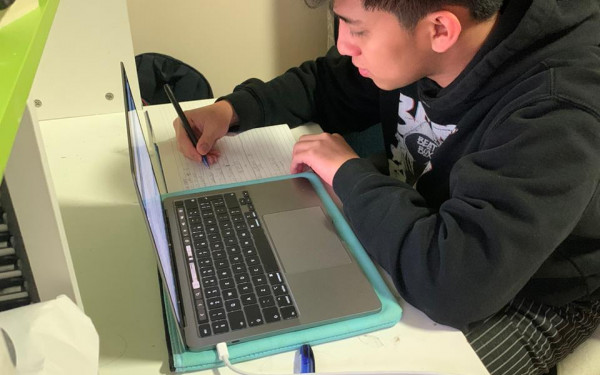Online schooling leaving students with learning disabilities behind
How to make the best of a stressful situation
The challenges of online learning have proved difficult for many, leaving students with learning disabilities facing more hurdles than usual.
“We have to work twice as hard as the others,” said Muriel Smith, a first-year student in film animation. She was diagnosed with ADHD at the age of 14.
At the beginning of the pandemic, she wasn’t sure if she would attend an online semester at Concordia. “I wasn’t sure if online school was the place for me, I prefer the in-person school environment,” said Smith.
Going into this new environment of online school, she felt no structure. She would sometimes wake up late for classes.
During her time in CEGEP, Smith recounted the late nights she’d spend in the labs at school. Smith explained that working in an environment with other students motivates her to do better.
At home, she’s needed to acquire skills and resources to keep her on track. One of these tools is a browser extension called Block and Focus. It blocks out notifications from all social media outlets and helps her stay on task.
“It’s a lifestyle to be a student,” said Smith.
For students with autism, moving into unknown territories like online learning brings anxiety. Many students with autism need the normalcy of a classroom.
Carlo Lombardo, 27, started his first semester at Concordia in intermedia this fall. Carlo has high-functioning autism and explained the struggles he faced during his first few weeks of online learning.
“We have to work out longer periods of thinking, in a less disruptive way. We have to master this more than ever in an online era.” —Charles Altman
“I find the layout of Moodle to be complex,” said Lombardo. With all the tabs and buttons, sometimes the site doesn’t get its users to the right place. Lombardo said Omnivox—the site he used in CEGEP—was a lot more simpler, where the tabs on the website were laid out more clearly.
When Lombardo first learned that Concordia would be offering their classes online, he hoped they would soon return to campus. Having a brother that also attends Concordia really inspired him and he was looking forward to his first experience on campus.
The shift to in person learning gave him a feeling of panic. A method he uses to cope with the online classes is taking the time to read over his assignments.
Lombardo made sure that all his professors are aware that he has autism. He’s also registered at the Access Centre for Students with Disabilities where he gets extra time on things like tests and assignments.
Charles Altman, a counsellor at the university, explained that one of the problems of online learning for students with learning disabilities is having multiple screens open at once. Multiple stimuli do not help students with learning disabilities. He suggested limiting it to focusing on one screen at a time.
“Sometimes when you start a task and don’t finish it, it bugs you for the rest of the night,” he said.
When doing homework for a class, Altman recommended breaking it up into smaller chunks—working in 20 minute periods with smaller brakes in between. He also strongly recommended to set an allotted time for viewing texts or social media updates.
“We have to work out longer periods of thinking, in a less disruptive way. We have to master this more than ever in an online era,” Altman said.
For other students who are facing similar challenges, whether related to learning disabilities or just from the new norm of learning through online classes, they could benefit from a counsellor’s advice.
“All the resources do not come from the outside, they come from within,” Altman said.







